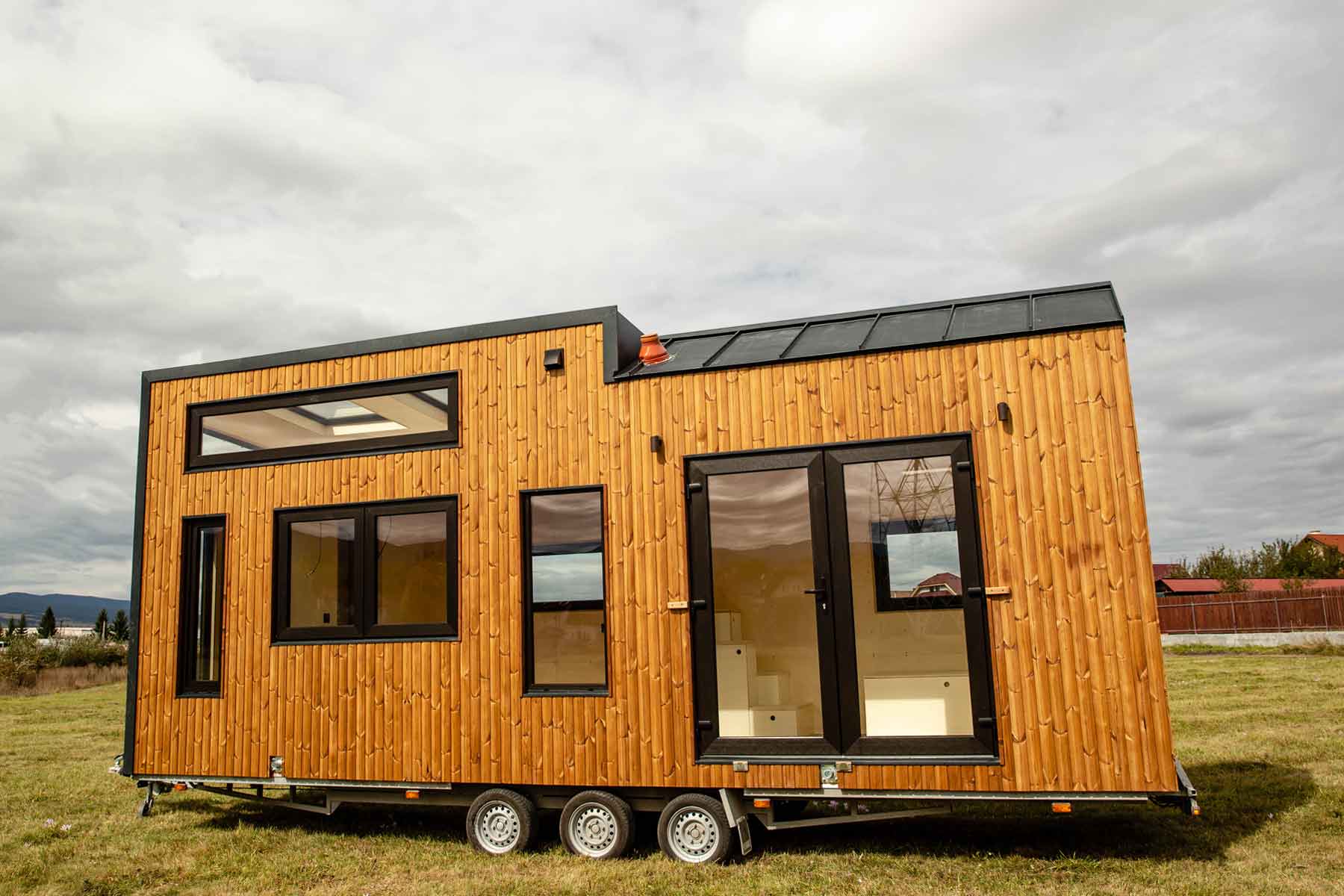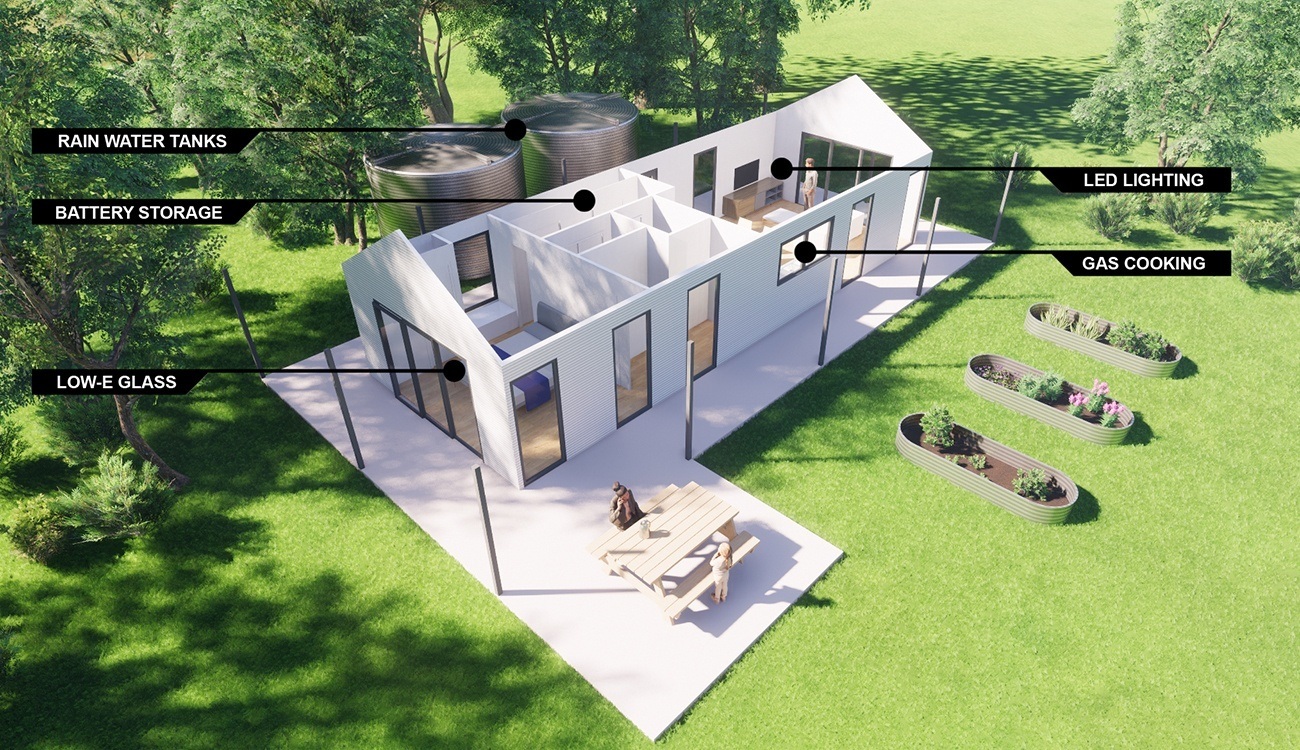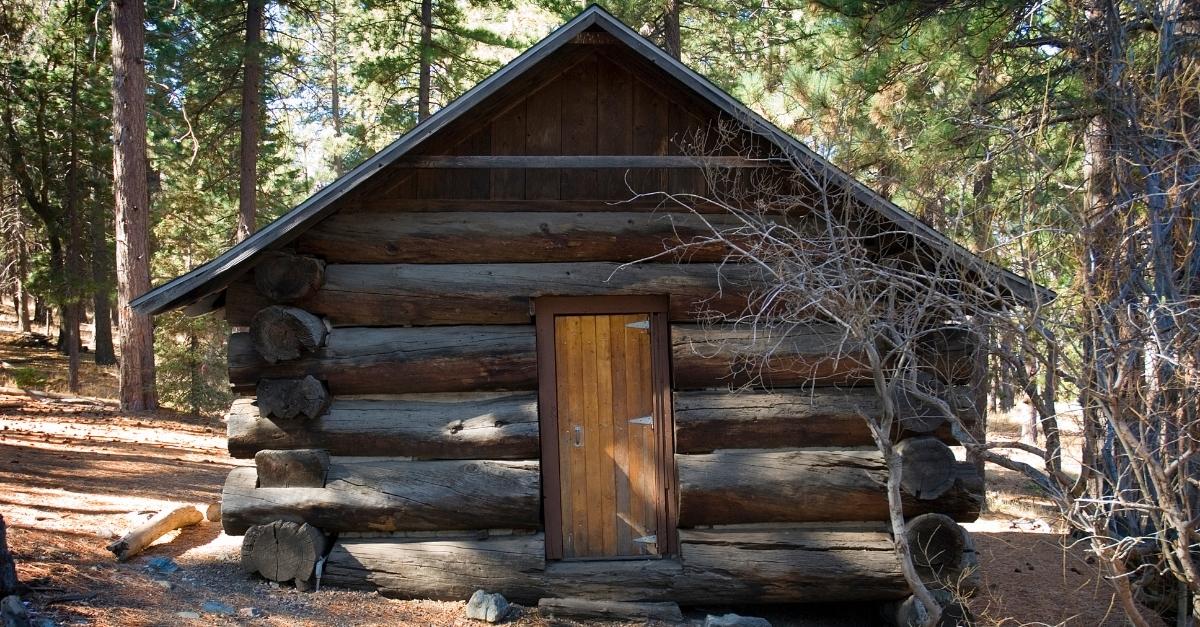Off grid living land UK presents a unique challenge and opportunity: escaping urban life for self-sufficient rural existence. This guide delves into the legal, practical, and financial aspects of achieving this dream, from securing suitable land to building and maintaining a sustainable off-grid home. We explore the complexities of planning permission, water and waste management, energy generation, and financial considerations, providing a comprehensive overview for those considering this lifestyle change.
The journey to off-grid living in the UK is not without its hurdles. Navigating planning regulations, securing appropriate land, and establishing reliable infrastructure require careful planning and significant effort. However, the rewards – independence, self-sufficiency, and a closer connection with nature – are compelling for many. This guide aims to equip prospective off-grid dwellers with the knowledge and resources necessary to make informed decisions and successfully navigate the process.
Legalities of Off-Grid Living in the UK
Aspiring off-grid dwellers in the UK face a complex legal landscape. Successfully establishing an off-grid property requires navigating planning permission, water management, waste disposal regulations, and regional variations in legal frameworks. Failure to comply can result in enforcement action, fines, and even demolition orders.
Planning Permission Requirements
Building any structure, even a small dwelling, on land in the UK generally requires planning permission from the local council. This applies equally, and often more stringently, to off-grid projects. The council will assess the proposal against national and local planning policies, considering factors such as the impact on the environment, the visual impact on the landscape, and the proximity to other properties.
Applications must be comprehensive, including detailed plans, environmental impact assessments, and evidence of compliance with building regulations. Securing planning permission for off-grid buildings can be a lengthy and challenging process, often requiring specialist planning consultants. The likelihood of approval depends heavily on the location, the scale of the development, and the adherence to local planning policies. For example, building in a designated Area of Outstanding Natural Beauty (AONB) will face significantly higher hurdles than building in a less environmentally sensitive area.
Water Usage and Waste Disposal Regulations
Off-grid living necessitates self-sufficiency in water supply and waste management. The legal framework governing these aspects is primarily concerned with protecting public health and the environment. Water sources must be properly assessed for potability, and any abstraction from rivers, streams, or groundwater may require licensing from the Environment Agency. Wastewater treatment must adhere to strict regulations to prevent pollution.
Approved systems, such as septic tanks or reed beds, are typically required, and these must be properly installed and maintained. Regular inspections may be carried out by the local council or environmental health officers. Improper waste disposal can lead to significant fines. The type of waste disposal system permitted will often depend on the soil type and the local environmental conditions.
Regional Variations in Legal Frameworks
While national legislation provides a general framework, significant variations exist across different UK regions. Local councils have considerable discretion in interpreting and applying planning policies, leading to differences in the approval process and the specific requirements for off-grid projects. For example, one council might be more lenient towards renewable energy installations, while another might prioritize preserving traditional landscapes.
Furthermore, the availability of resources and the local environmental conditions influence the practicality and legality of certain off-grid solutions. Thorough research into the specific legal requirements of the target area is crucial before embarking on an off-grid project.
Key Legal Considerations for Off-Grid Land Acquisition and Development
| Aspect | Legal Consideration | Potential Issues | Mitigation Strategies |
|---|---|---|---|
| Land Acquisition | Ownership rights, planning restrictions, environmental designations | Disputes over ownership, limitations on development, protected species presence | Thorough title search, planning application pre-purchase, ecological surveys |
| Planning Permission | Building regulations, environmental impact assessment, neighbour consultations | Rejection of application, appeals process, enforcement action | Detailed planning application, professional planning advice, community engagement |
| Water Supply | Water abstraction licensing, water quality testing, potable water provision | Insufficient water supply, contamination, non-compliance with regulations | Borehole assessment, rainwater harvesting, water treatment system installation |
| Waste Disposal | Sewage treatment system, waste management plan, environmental permits | Pollution, health hazards, non-compliance with regulations | Approved sewage treatment system, regular maintenance, waste recycling plan |
Essential Infrastructure and Systems

Establishing essential infrastructure is paramount for successful off-grid living in the UK. This involves careful planning and implementation of water collection, energy generation, waste management, and heating systems, all while adhering to UK regulations. Failure to adequately address these areas can significantly impact the comfort, safety, and legality of off-grid existence.
Off-Grid Water Collection and Storage
Reliable water supply is crucial. Off-grid solutions typically involve rainwater harvesting and/or the use of a well or borehole. Rainwater harvesting systems comprise a roof catchment area, gutters, downpipes, filters, and storage tanks. The size of the tank depends on household needs and rainfall patterns. Regular cleaning of the catchment area and filters is vital to maintain water quality.
Wells and boreholes require professional assessment to ensure sufficient yield and water quality, often needing planning permission and adherence to water resource regulations. Storage tanks should be constructed from food-grade materials and regularly inspected for leaks and contamination. A filtration system, incorporating sediment filters and UV sterilisation, is essential for safe drinking water.
Off-Grid Electricity Generation
Generating electricity off-grid in the UK relies heavily on renewable sources due to environmental considerations and grid limitations in rural areas. Solar photovoltaic (PV) systems are popular, converting sunlight directly into electricity. The system’s size depends on energy consumption. Wind turbines offer another option, particularly in areas with consistent wind speeds, but require planning permission and careful site selection to minimize noise pollution.
Get the entire information you require about off grid living scotland on this page.
Hydropower, suitable for properties with streams or rivers, involves generating electricity from flowing water. Battery storage is crucial for all these systems to provide electricity at night or during periods of low sunlight or wind. The selection of the optimal system depends on factors such as available resources, energy demand, and initial investment costs.
Waste Management and Sewage Disposal
Managing waste and sewage responsibly is critical for environmental protection and compliance with UK regulations. Septic tanks are commonly used for sewage disposal in off-grid settings. These systems require regular emptying by licensed contractors, and their location must comply with environmental regulations to prevent groundwater contamination. Greywater recycling systems can be implemented to reuse wastewater from showers and sinks for non-potable purposes such as toilet flushing or garden irrigation, reducing water consumption.
Waste sorting and composting are essential for managing solid waste, minimizing landfill contributions, and creating valuable compost for gardens. The Environment Agency provides guidelines on managing waste and sewage in accordance with the UK regulations.
Off-Grid Heating Systems
Choosing the right heating system is essential for comfort and energy efficiency in the UK’s climate. Several options exist, each with advantages and disadvantages:
- Wood-burning stoves: Provide a cozy atmosphere and can be cost-effective if wood is readily available. However, they require regular maintenance and fuel sourcing, and may not be suitable for all properties due to smoke emissions and safety concerns.
- Ground source heat pumps (GSHP): Highly efficient, using the stable temperature of the ground to heat and cool a property. Installation costs are high, but running costs are relatively low. They require significant groundworks and planning permission.
- Air source heat pumps (ASHP): Similar to GSHPs but extract heat from the outside air. Less expensive to install than GSHPs but less efficient, particularly in colder climates. They require minimal groundworks and are generally easier to install.
- Solar thermal systems: Use solar collectors to heat water, reducing reliance on other heating systems for domestic hot water. They are a cost-effective way to supplement other heating sources, but may not provide sufficient heat alone during colder months.
Building and Construction: Off Grid Living Land Uk

Embarking on an off-grid lifestyle in the UK necessitates careful consideration of building and construction methods. Sustainable and cost-effective practices are paramount, balancing environmental responsibility with the practicalities of self-sufficiency. Choosing the right materials and adhering to regulations are crucial for a successful and safe project.
Sustainable and Cost-Effective Building Materials
The UK offers a range of sustainable and cost-effective building materials suitable for off-grid construction. Recycled materials, locally sourced timber, and natural insulation options significantly reduce environmental impact and construction costs. Examples include reclaimed timber from demolished buildings, which offers a unique aesthetic and reduces waste. Straw bales, a readily available and renewable resource, provide excellent insulation properties when properly treated.
Cob, a mixture of clay, sand, and straw, is a traditional building method that offers excellent thermal mass and is environmentally friendly. Sheep’s wool insulation provides natural and effective insulation, reducing reliance on synthetic materials. Finally, using locally sourced stone or brick reduces transportation costs and supports local economies.
Designing and Constructing a Self-Sufficient Dwelling
Designing an off-grid dwelling requires a holistic approach, integrating energy efficiency, water harvesting, and waste management systems. Passive solar design, maximizing sunlight exposure for heating and minimizing heat loss, is crucial. Careful orientation of the building can reduce energy consumption significantly. Incorporating rainwater harvesting systems for non-potable water needs reduces reliance on mains water. Greywater recycling systems, treating wastewater from showers and sinks for toilet flushing or garden irrigation, further enhance self-sufficiency.
Composting toilets offer a sustainable alternative to traditional sewage systems. The design should also consider the use of renewable energy sources such as solar panels and wind turbines. A well-insulated building envelope is essential to minimize energy loss, reducing heating and cooling demands. Construction should prioritize durability and low maintenance, reducing long-term costs and effort.
Building Regulations and Safety Standards
Off-grid constructions in the UK are subject to building regulations, ensuring structural safety, fire safety, and energy efficiency. Compliance is mandatory, regardless of the scale of the project. The Building Regulations 2010, along with associated Approved Documents, provide detailed guidance on various aspects of construction, including structural stability, fire safety, and energy efficiency. Specific regulations vary depending on the location and type of construction.
It is crucial to engage with local authorities and building control officers early in the planning process to ensure compliance. Regular inspections throughout the construction process are often required to ensure adherence to safety standards. Failure to comply with building regulations can result in legal action and potential demolition orders.
Obtaining Necessary Permits and Approvals, Off grid living land uk
Securing the necessary permits and approvals for off-grid construction involves several steps. Initial consultation with the local planning authority is essential to determine the feasibility of the project and any potential planning restrictions. Detailed plans and specifications, including materials, construction methods, and services, must be submitted for approval. Applications for building regulations approval are required before construction begins.
This process involves detailed inspections to ensure compliance with safety standards. Environmental impact assessments may be necessary, particularly for projects in sensitive areas. Connection to utilities, such as electricity and water, will require approval from the relevant providers. Compliance with all relevant regulations and obtaining all necessary approvals before commencing construction is crucial to avoid delays and potential legal issues.
The entire process can take several months, so early engagement with the relevant authorities is vital.
Environmental Impact and Sustainability
Off-grid living in the UK, while appealing for its self-sufficiency, presents a complex relationship with the environment. The aim is to minimize the ecological footprint while achieving a sustainable lifestyle. This requires careful consideration of energy production, waste management, and resource consumption. A truly sustainable off-grid existence requires a proactive approach to mitigating potential negative impacts.The environmental impact of off-grid living is multifaceted.
While reducing reliance on centralized utilities can lower overall carbon emissions in some aspects, the methods employed for self-sufficiency can introduce other environmental concerns. For instance, reliance on wood burning for heating can contribute to air pollution and deforestation if not managed responsibly. Similarly, water usage and waste disposal need careful planning to avoid harming local ecosystems. Improperly managed septic systems, for example, can lead to groundwater contamination.
The production and disposal of renewable energy sources also have environmental implications, albeit often less severe than fossil fuel alternatives.
Minimizing Environmental Impact Through Sustainable Practices
Sustainable off-grid living necessitates a holistic approach, integrating environmentally conscious choices into every aspect of daily life. This extends beyond simply choosing renewable energy sources; it encompasses resource management, waste reduction, and responsible land use. A key aspect is reducing reliance on energy-intensive processes and materials. Prioritizing energy efficiency in building design and employing passive solar heating techniques significantly reduces reliance on supplemental energy sources.
Sustainable Energy Production and Consumption
The choice of energy source is crucial. While solar and wind power are widely promoted as environmentally friendly, their production and disposal involve resource consumption and potential environmental impacts. Life cycle assessments of different renewable energy systems are crucial to understanding their full environmental cost. For example, the manufacturing of solar panels requires energy and specific materials. Careful consideration should be given to the long-term sustainability of the chosen energy system, including its maintenance and eventual replacement.
Energy efficiency measures, such as proper insulation and the use of energy-efficient appliances, are equally important in minimizing overall energy consumption.
Waste Management and Resource Conservation
Effective waste management is critical for minimizing the environmental footprint of an off-grid property. Composting toilets and greywater recycling systems can significantly reduce water consumption and waste disposal needs. Careful planning and implementation are essential to prevent contamination of soil and groundwater. Reducing reliance on single-use plastics and adopting a “reduce, reuse, recycle” approach are vital. Strategies for waste reduction include careful planning of purchasing, repairing items instead of replacing them, and choosing products with minimal packaging.
The emphasis should be on minimizing waste generation from the outset.
Sustainable Building and Construction
The construction of an off-grid dwelling presents an opportunity to incorporate sustainable building practices. Using locally sourced, recycled, or sustainably harvested materials reduces the carbon footprint associated with transportation and material production. Passive solar design, utilizing natural light and heat, minimizes the need for artificial lighting and heating. Employing natural insulation materials, such as straw bales or sheep’s wool, further enhances energy efficiency.
The overall design should prioritize minimizing environmental impact throughout the building’s lifecycle.
A Guide to Minimizing the Environmental Footprint of an Off-Grid Property
Careful planning is paramount to minimizing the environmental impact of off-grid living. The following steps Artikel a practical approach:
- Conduct a thorough site assessment to understand the local environment and resources.
- Design and build an energy-efficient dwelling using sustainable materials.
- Implement a renewable energy system, carefully considering its life-cycle impacts.
- Install a water conservation and greywater recycling system.
- Establish a composting toilet and effective waste management system.
- Practice responsible land management, including protecting natural habitats.
- Adopt a low-impact lifestyle, emphasizing resource conservation and waste reduction.
- Regularly monitor and evaluate the environmental impact of your off-grid practices.
Embarking on the path to off-grid living in the UK requires meticulous planning, a robust understanding of regulations, and a commitment to sustainable practices. While challenges exist, the potential rewards – a life of self-sufficiency, connection with nature, and reduced environmental impact – make it an increasingly attractive prospect for those seeking an alternative lifestyle. By carefully considering the legal, practical, and financial aspects Artikeld in this guide, aspiring off-grid dwellers can significantly increase their chances of success in creating a thriving and sustainable rural home.


